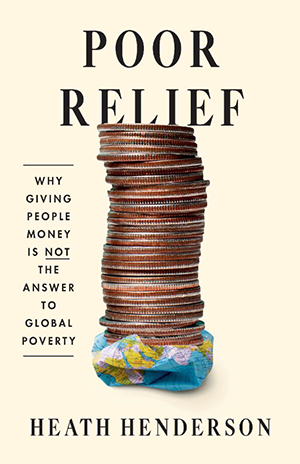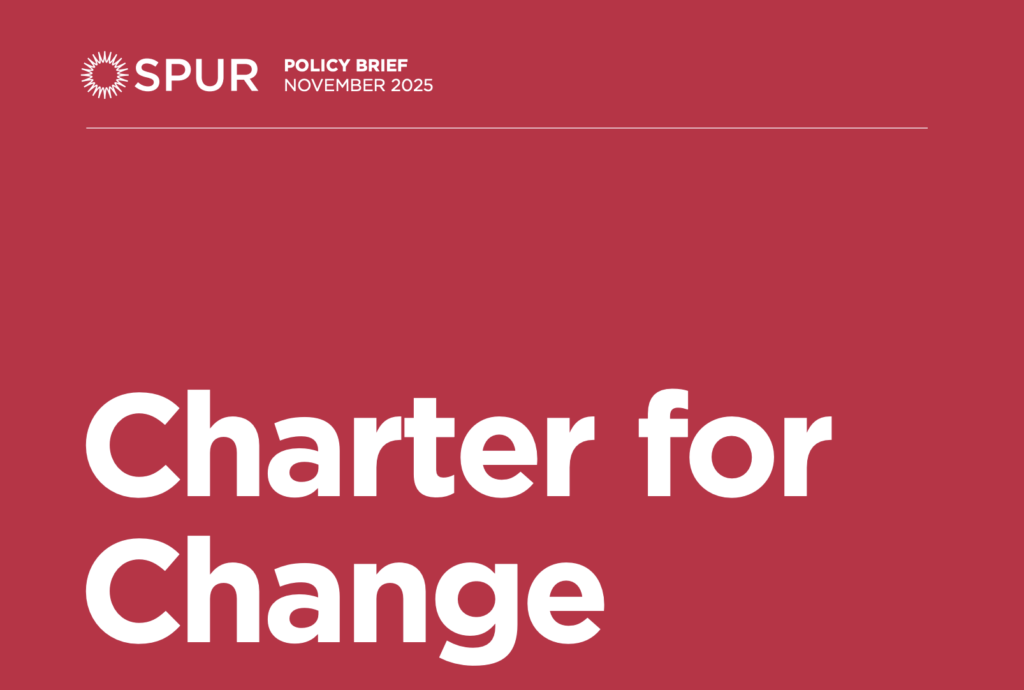Deputizing the IRS – Truthdig

Impact of United States Remittance and Data Policies on Sustainable Development Goals
Executive Summary
A new United States policy, the “One Big Beautiful Bill Act,” introduces a 1% tax on international wire transfers sent by undocumented immigrants, effective January 2026. This measure, coupled with expanded data-sharing agreements between federal agencies, poses a significant challenge to the advancement of several United Nations Sustainable Development Goals (SDGs). The policy directly impacts poverty reduction, economic growth, and institutional justice by targeting a primary financial lifeline for communities in developing nations and expanding a surveillance infrastructure that erodes privacy and public trust.
Direct Consequences for Economic and Social Development
Hindering SDG 1 (No Poverty) and SDG 10 (Reduced Inequalities)
Remittances are a fundamental tool for poverty alleviation and reducing inequality between and within countries. The implemented tax directly obstructs this financial flow, which is critical for families in Latin American nations such as Honduras, Mexico, and Guatemala.
- Poverty Alleviation: Remittances are used to cover essential needs, directly contributing to SDG 1. This includes funds for food, clothing, and household goods.
- Housing and Infrastructure: Migrant workers finance the construction of modest, safe housing for their families, aligning with targets under SDG 11 (Sustainable Cities and Communities).
- Health and Education: The funds cover critical healthcare costs, such as surgeries, and educational expenses like school supplies, supporting SDG 3 (Good Health and Well-being) and SDG 4 (Quality Education).
- Increased Inequality: The tax specifically targets wire transfers, a method most commonly used by individuals without access to formal banking. This disproportionately burdens a vulnerable population, exacerbating inequalities contrary to the objective of SDG 10.
Undermining SDG 8 (Decent Work and Economic Growth)
The policy has significant repercussions for the economic stability of both migrant workers and their home countries.
- Impact on National Economies: For some nations, remittances constitute a major portion of the gross domestic product (GDP). In Guatemala, remittances totaled $21.5 billion, representing a fifth of the country’s GDP and exceeding revenue from exports. The tax is projected to cause a deceleration in these vital payments, threatening economic growth.
- Precarious Labor: Migrants often work in precarious conditions with inconsistent hours and low pay to send money home. The tax adds a further financial burden to their labor.
- Growth of the Underground Economy: Legal and policy experts warn that fear of taxation and data collection will push more economic activity “off the books.” This shift undermines the principles of decent work, regulation, and safety, creating a less stable economic environment for all.
Erosion of Justice, Privacy, and Institutional Trust
Contradiction of SDG 16 (Peace, Justice and Strong Institutions)
The remittance tax is intrinsically linked to a data-collection initiative that raises serious concerns about privacy, surveillance, and the integrity of public institutions.
- Data for Deportation: The policy requires senders to provide identifying information, which will be reported to the Internal Revenue Service (IRS). This coincides with an April 7 data-sharing agreement between the IRS and Immigration and Customs Enforcement (ICE), allowing tax information to be used for civil immigration enforcement.
- Erosion of Privacy Principles: The use of data collected for one purpose (taxation) for another (deportation) violates established privacy principles. This action, described by the Electronic Frontier Foundation as an attempt to create “one big database,” undermines the accountability and transparency mandated by SDG 16.
- Surveillance Infrastructure: ICE has systematically built a surveillance network by accessing data from state DMVs, utility companies, and credit-reporting agencies, and is seeking access to data from Medicaid, Social Security, and the Postal Service. This creates a domestic surveillance apparatus with little oversight.
Public Health and Safety Risks (SDG 3 & SDG 11)
The secondary effects of the policy threaten broader community well-being.
- Decreased Tax Compliance: Fear of data sharing is expected to discourage undocumented immigrants from filing taxes with Individual Taxpayer Identification Numbers (ITINs).
- Impact on Public Services: Reduced use of ITINs could prevent individuals from obtaining driver’s licenses or business licenses, leading to more unlicensed drivers and unregulated businesses.
- Health Risks: Experts warn that businesses, such as food vendors, being forced into the unregulated underground economy could create public health risks for the entire community due to a lack of oversight.
Conclusion
The remittance tax and its associated data-collection mechanisms function as a tool of “intimidation and aggression towards migrants,” according to the Central American Institute for Fiscal Policy. While framed as a fiscal measure, its primary impact is to create fear, incentivize self-deportation, and make life more difficult for undocumented workers. In doing so, the policy actively works against the global agenda for sustainable development by increasing poverty, exacerbating inequality, threatening the economic growth of developing nations, and eroding trust in public institutions.
1. Which SDGs are addressed or connected to the issues highlighted in the article?
SDG 1: No Poverty
- The article directly connects migrant remittances to poverty alleviation in their home countries. Migrants like Valentina, Gerardo, and Eli send money and goods to support their families’ basic needs. Gerardo’s remittances cover his “daughter’s food, clothes and school supplies, the cost of a surgery his father needed, and the payments for construction of a modest house for his family.” This demonstrates how remittances serve as a crucial lifeline, directly combating poverty.
SDG 8: Decent Work and Economic Growth
- The article highlights the precarious working conditions of undocumented migrants. Eli’s employment at a Honduran restaurant, where she earns “$12 an hour” but her employer “usually skimp on her shifts,” exemplifies the lack of decent work. The fear of deportation and the potential for being forced into an “underground economy” further underscore the insecure working environments faced by these workers, which is a core concern of SDG 8.
SDG 10: Reduced Inequalities
- The central theme of the article is the discriminatory nature of policies targeting a vulnerable group—undocumented immigrants. The proposed remittance tax is described as an “anti-immigrant campaign” that specifically targets those who “can’t open a bank account,” thereby exacerbating inequality. The article also touches on the economic disparity between the U.S. and countries like Guatemala, which is “more dependent on remittances” than any other nation in Latin America, making these policies a matter of international inequality.
SDG 16: Peace, Justice and Strong Institutions
- The article extensively discusses the erosion of justice and institutional integrity. The ICE-IRS data-sharing agreement, which uses confidential taxpayer information for civil deportation proceedings, is presented as a misuse of government power and a violation of privacy principles. The article notes, “A very important privacy principle is if the government collects data for one reason, they cannot use it for another reason.” The creation of a massive surveillance infrastructure with little oversight and the legal challenges against it (e.g., the Public Citizen lawsuit) are central to the themes of justice and accountable institutions.
2. What specific targets under those SDGs can be identified based on the article’s content?
-
SDG 1: No Poverty
- Target 1.3: Implement nationally appropriate social protection systems. The article shows how remittances function as an informal, private social protection system for families in Honduras and Mexico, covering healthcare, housing, and daily sustenance when state systems may be inadequate.
- Target 1.4: Ensure equal rights to economic resources and access to basic services and ownership of property. The article mentions that a key goal for migrants like Valentina and Gerardo is “financing the construction of a house” in their home country, which directly relates to property ownership.
-
SDG 8: Decent Work and Economic Growth
- Target 8.8: Protect labour rights and promote safe and secure working environments for all workers, including migrant workers. The article describes how migrants “live with fear of going out to work” and how policies are designed to “make life more difficult for undocumented workers,” which is the antithesis of a safe and secure working environment.
- Target 8.10: Strengthen the capacity of domestic financial institutions to encourage and expand access to banking… for all. The article points out that the remittance tax specifically affects workers who “can’t open a bank account in the United States,” highlighting a failure to provide access to formal financial services for this population.
-
SDG 10: Reduced Inequalities
- Target 10.7: Facilitate orderly, safe, regular and responsible migration and mobility of people. The policies described in the article—such as the remittance tax, mass data collection, and the threat of deportation—create a hostile environment that undermines safe and orderly migration, instead promoting fear and irregularity.
- Target 10.c: By 2030, reduce to less than 3 per cent the transaction costs of migrant remittances. The article details how the new policy will actively increase remittance costs. Gerardo already pays a “$10 fee for each $2,000 transfer,” and the proposed “1% tax” will add another “$20 to the bill,” moving in the opposite direction of this target.
-
SDG 16: Peace, Justice and Strong Institutions
- Target 16.3: Promote the rule of law… and ensure equal access to justice for all. The article discusses the legal challenge to the ICE-IRS agreement, questioning whether using tax data for civil deportation is a lawful application of government power, thus engaging directly with the principle of the rule of law.
- Target 16.6: Develop effective, accountable and transparent institutions at all levels. The article critiques ICE’s transformation into a “domestic surveillance agency” that has taken place with “little oversight, evading regulation by both federal lawmakers and state authorities,” pointing to a lack of accountability and transparency.
- Target 16.10: Ensure public access to information and protect fundamental freedoms. The article focuses on the threat to the fundamental freedom of privacy, citing an expert who states, “A very important privacy principle is if the government collects data for one reason, they cannot use it for another reason.” The government’s data-gathering is presented as a direct assault on this freedom.
3. Are there any indicators mentioned or implied in the article that can be used to measure progress towards the identified targets?
-
Indicator for Target 10.c: Remittance costs as a proportion of the amount remitted.
- The article provides specific figures that can be used to calculate this indicator. It states that Gerardo pays a “$10 fee for each $2,000 transfer” (a 0.5% cost) and that the new legislation will add a “1% tax,” increasing the total cost. This is a direct measurement of remittance transaction costs.
-
Implied Indicator: Total volume of remittances.
- The article mentions that money transfers “last year amounted to $740 billion” globally and that “total remittances to Guatemala amounted to $21.5 billion, a fifth of the country’s gross domestic product.” Tracking this volume is a key indicator of the economic impact of migration and the potential effect of policies like the remittance tax.
-
Implied Indicator: Proportion of the migrant workforce in the informal or precarious economy.
- The article implies this through the story of Eli, who works irregular shifts, and the warning from an attorney that these policies will “force people more into the underground economy.” A rise in workers operating “off the books” would be a negative indicator for decent work (SDG 8).
-
Implied Indicator: Tax compliance rate among non-citizen workers.
- The article explicitly states that “the remittance tax is expected to decrease overall tax compliance among undocumented immigrants.” The number of Individual Taxpayer Identification Number (ITIN) filings could serve as a proxy indicator to measure the “chilling effect” of the data-sharing agreement on migrants’ willingness to participate in the formal system.
-
Implied Indicator: Number of legal challenges to government surveillance and data-sharing programs.
- The article mentions that the nonprofit “Public Citizen filed to stop the ICE-IRS agreement.” The frequency and outcomes of such lawsuits serve as an indicator of the ongoing struggle for justice, accountability, and the protection of fundamental freedoms (SDG 16).
4. Table of SDGs, Targets, and Indicators
| SDGs | Targets | Indicators |
|---|---|---|
| SDG 1: No Poverty | 1.4: Ensure equal rights to economic resources… as well as access to… ownership and control over… property. | Implied: Use of remittances for asset building, such as “financing the construction of a house in Honduras.” |
| SDG 8: Decent Work and Economic Growth | 8.8: Protect labour rights and promote safe and secure working environments for all workers, including migrant workers. | Implied: Prevalence of precarious work conditions (e.g., irregular shifts, fear of deportation) and the number of workers forced into the “underground economy.” |
| SDG 10: Reduced Inequalities | 10.c: Reduce to less than 3 per cent the transaction costs of migrant remittances. | Direct: Remittance costs as a proportion of the amount remitted (e.g., “$10 fee for each $2,000 transfer” plus a new “1% tax”). |
| SDG 10: Reduced Inequalities | 10.7: Facilitate orderly, safe, regular and responsible migration and mobility of people. | Implied: The impact of policies that create fear and incentivize “self-deport,” working against the goal of safe and orderly migration. |
| SDG 16: Peace, Justice and Strong Institutions | 16.6: Develop effective, accountable and transparent institutions at all levels. | Implied: Level of oversight for government surveillance programs (described as having “little oversight”). |
| SDG 16: Peace, Justice and Strong Institutions | 16.10: Ensure public access to information and protect fundamental freedoms. | Implied: Number of legal challenges to government data-sharing agreements that threaten privacy (e.g., the “Public Citizen” lawsuit). |
Source: truthdig.com

What is Your Reaction?
 Like
0
Like
0
 Dislike
0
Dislike
0
 Love
0
Love
0
 Funny
0
Funny
0
 Angry
0
Angry
0
 Sad
0
Sad
0
 Wow
0
Wow
0















;Resize=805#)





























































